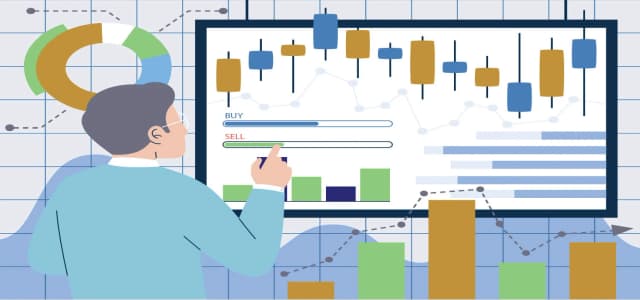Access Global Currency
Trading with YES Securities
Trade confidently in currency derivatives like USD, JPY, GBP, and benefit from risk-hedging and global diversification.
Popular Currency Pairs
Start investing with YES SECURITIES
*By proceeding, I agree to all terms & conditions

Why Invest in Currencies?

Capitalise on currency value swings for exciting profit opportunities.

Reduce risk by spreading investments across global currencies.

Enjoy the freedom and trade from anywhere.

Magnify your gains by using leverage to amplify your trading power.
How to Activate a Currency Trading Account with YES Securities?
- 1In the Demat and Product stage, select Currency under Product Details.
- 2Accept the CAMSfinserv Terms and Conditions.
- 3 Complete the CAMSfinserv verification journey.
- 4Six months of bank statements will be automatically retrieved and uploaded under the Income Proof section during the document stage.

Documents Required to Open Currency Trading Account
(Last 6 Months)
Acknowledgement
Certificate
Statement


What is Currency Market Trading?
Currency trading, also known as foreign exchange (forex or FX) trading, involves the buying and selling of currency pairs to make a profit from exchange rate fluctuations. It is one of the most liquid and active financial markets globally, operating 24 hours a day, five days a week. Participants include central banks, financial institutions, corporations, and retail traders. In India, currency trading is regulated by the Reserve Bank of India (RBI) and the Securities and Exchange Board of India (SEBI), and trading takes place on recognised exchanges like NSE, BSE, and MCX-SX.
Functions of Currency Trading
- Diverse Participation: The currency market involves a wide range of players, including banks, financial institutions, corporations, governments, and individual traders.
- Liquidity Provision: Market makers, primarily banks, enhance market liquidity by quoting buy (bid) and sell (ask) prices for currency pairs. This helps traders enter or exit trades with ease.
- Use of Leverage: Forex markets offer leverage, allowing traders to manage larger trades with less capital. This boosts profit potential, but also increases the risk of significant losses.
- Influence of Economic Indicators: Macroeconomic data, like GDP reports, employment figures, and central bank announcements, can impact currency values and create price volatility.
Currency Trading Timings in India
For currency trading in India, the foreign exchange market is open twenty-four hours a day, five days a week. Currency trading occurs Monday through Friday from 9:00 a.m. to 5:00 p.m. within the Reserve Bank of India's operating hours. On the other hand, the foreign exchange market is open to trading at any time and is worldwide.
Types of Currency Market
- Spot Market: Provides quick transaction execution and immediate payment based on current exchange rates, with most trades settling in one to two days.
- Forward Market: Involves two parties agreeing to trade a set quantity at a predetermined price on a future date.
- Futures Market: A centralised platform where standardised contracts are bought and sold for the future delivery of assets at a set price.
- Options Market: Enables buying and selling of options contracts, allowing investors to buy or sell an asset at a specified price within a certain period.
- Swaps Market: Involves exchanging cash flows or liabilities between two parties, based on a principal amount.
Did you know? Currency trading is the world’s biggest financial market over $7.5 trillion changing hands every single day!
Did you know? Currency trading is the world’s biggest financial market over $7.5 trillion changing hands every single day!
FAQs on Currency Market Trading
In the stock market, how do you trade currencies?
What kinds of currency trading are there in Indian markets?
What are futures contracts in currency trading?
What are options contracts in currency trading?
When does currency trading take place?
In India, which currency pairs are available for trading?
What does currency trading margin mean?
What occurs if I don't square off my position before it expires?
Are currency futures and options subject to expiration?
What are the risks of speculation in the currency market?
How is currency trading taxed in India?
When do currency contracts expire in forex trading?
What are the lot sizes in forex trading?

Download
OMNI App



